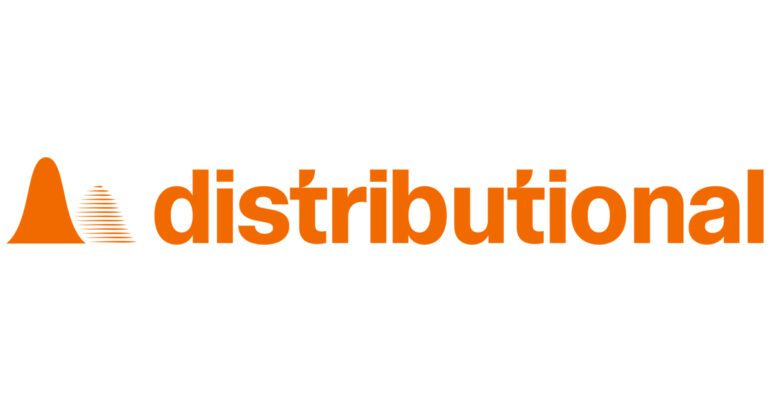TL;DR:
- Distributional, founded by Scott Clark, aims to develop software addressing AI risks in enterprises.
- The company’s platform focuses on proactive and continuous AI risk identification and mitigation.
- Distributional’s core product detects and diagnoses AI “harm” from various AI models.
- It offers a comprehensive view of AI risk in a secure pre-production environment.
- Distributional stands out by catering to the unique needs of large enterprises in regulated and unregulated sectors.
- The startup recently secured an $11 million seed funding round led by Andreessen Horowitz.
Main AI News:
In the ever-evolving landscape of technology, companies are increasingly drawn to the potential of artificial intelligence (AI) to enhance productivity. However, they also harbor concerns about the inherent risks associated with AI adoption. According to a recent survey conducted by Workday, enterprises identify several key obstacles to implementing AI effectively, including the quality and reliability of underlying data, potential bias in AI algorithms, and concerns related to security and privacy.
Recognizing a lucrative business opportunity within this context, Scott Clark, a seasoned entrepreneur who co-founded the AI training and experimentation platform SigOpt (subsequently acquired by Intel in 2020), embarked on a mission to develop software designed to make AI safe, reliable, and secure. This vision gave birth to Distributional, a company dedicated to launching an initial version of this transformative software, with ambitions to scale and standardize testing processes across various AI use cases.
“Distributional is forging the path toward a modern enterprise platform for AI testing and evaluation,” remarked Clark in an email interview with TechCrunch. “As the influence of AI applications continues to grow, so does the potential for harm. Our platform empowers AI product teams to proactively and consistently identify, comprehend, and address AI-related risks before they impact customers in real-world applications.”
Clark’s inspiration for founding Distributional stemmed from his experiences at Intel after the acquisition of SigOpt. While serving as Intel’s VP and GM of AI and high-performance computing, he grappled with the challenge of ensuring that high-quality AI testing occurred regularly and systematically.
“My experiences illuminated the critical need for AI testing and evaluation,” Clark elaborated. “Teams frequently encounter difficulties when attempting to identify, understand, and rectify AI risks through testing, which can encompass issues related to hallucinations, instability, inaccuracies, integration problems, and various other challenges. Effective AI testing requires a profound and comprehensive understanding, a problem that is inherently complex to solve.”
At its core, Distributional’s flagship product aims to identify and diagnose AI “harm” emanating from large language models, such as OpenAI’s ChatGPT and other AI model types. The software strives to semi-automatically determine what aspects to test, how to test them, and where to conduct these tests. Organizations using Distributional gain access to a comprehensive view of AI risks within a pre-production environment, akin to a secure sandbox.
“Many teams opt to assume risks associated with model behavior, accepting that AI models may exhibit issues,” Clark explained. “Some may resort to ad-hoc manual testing, which is resource-intensive, disorganized, and inherently incomplete. Others may attempt to passively identify issues using monitoring tools once AI is in production. That’s why our platform encompasses an adaptable testing framework for continuous stability and robustness testing, a configurable testing dashboard for visualizing and interpreting test results, and an intelligent test suite for designing, prioritizing, and generating the most appropriate tests.“
While Clark was somewhat tight-lipped about the specific workings of Distributional’s platform, he noted that the company is in the early stages of co-designing the product with enterprise partners. Given that Distributional has not yet generated revenue, launched its platform, or secured paying customers, one might wonder how it can compete in a market crowded with AI testing and evaluation platforms, such as Kolena, Prolific, Giskard, and Patronus, many of which boast substantial funding. Additionally, tech behemoths like Google Cloud, AWS, and Azure offer their own model evaluation tools.
Clark maintains that Distributional distinguishes itself through its enterprise-centric software. “Right from the outset, we are developing software capable of meeting the data privacy, scalability, and complexity requirements of large enterprises, whether they operate in regulated or unregulated industries,” he asserted. “Our target clientele possesses needs that extend beyond the offerings available in the current market, which tend to be geared toward individual developers.”
If all proceeds as planned, Distributional anticipates generating revenue in the upcoming year when its platform becomes generally available and select design partners transition to paying customers. Meanwhile, the startup is securing funding from venture capitalists, with Distributional recently announcing the successful closure of an $11 million seed funding round led by Andreessen Horowitz’s Martin Casado, along with contributions from Operator Stack, Point72 Ventures, SV Angel, Two Sigma, and various angel investors.
“We aim to instigate a virtuous cycle for our clients,” Clark concluded. “With enhanced testing capabilities, teams will deploy AI with greater confidence in their applications. As AI deployments expand, their impact will grow exponentially, ultimately addressing more complex and meaningful challenges. Consequently, the need for rigorous testing to ensure safety, reliability, and security will become even more pronounced.”
Conclusion:
Distributional’s emergence in the AI testing and evaluation space signifies a pivotal shift towards proactive risk mitigation in enterprise AI applications. With a focus on meeting the stringent requirements of large enterprises, Distributional aims to fill a crucial gap in the market. Its successful funding round and planned revenue generation in the near future indicate strong potential for reshaping the landscape of AI safety and reliability.

